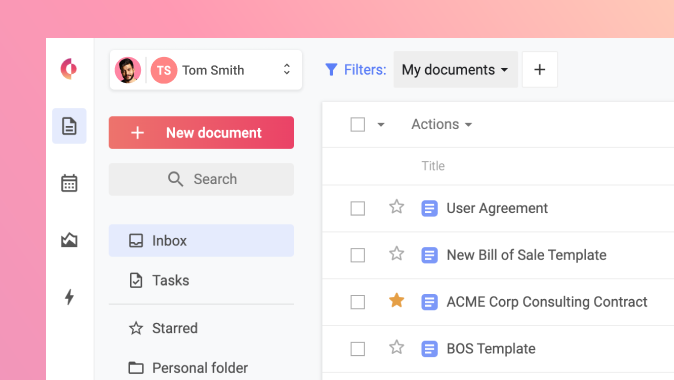Lets Talk Turkey About Signing Contracts
In today’s business environment, contracts govern many business-to-business (B2B) transactions. Being contract savvy will ensure that you are never unpleasantly surprised by something you discover after entering into an agreement with another company.
If you’re responsible for signing contracts on behalf of your company, here are 10 areas you should have a thorough understanding of before you sign on the proverbial dotted line.
Perform Due Diligence
Before getting to the point of signing any vendor agreement, it’s important that you perform due-diligence checks on the vendor. A list of reference can be requested in your RFP.
You should also make sure that the company’s agent is a legitimate representative of the company. If you have any doubt about the representative’s authority to sign on behalf of the company, you may want to review the company’s corporate documents. Additionally, the company’s corporate secretary should be able to provide you with documentary evidence that the person who intends to sign the contract has signing authority.
Make Sure the Contract is Complete
You should never sign a contract that is incomplete in any way, even if the other party assures you that what you’ve agreed to verbally will be filled in later. If you’re presented with an incomplete contract, you should advise the other party that you will sign it only when all the details have been filled in.
In addition, ensure that all exhibits are complete and attached to the contract. For example, a vendor service agreement might include an exhibit that provides a statement of work detailing the work that will be performed under the contract.
Pay Attention to How You Sign
Check to see that the names in the first paragraph of the contract, identifying which parties the contract will be between, are identical to the parties’ names in the signature blocks. The business you work for and the company or individual you are doing business with should be the names that appear in the first paragraph of the contract. Make sure your name is not listed here, unless you intend to sign the contract on behalf of yourself and not as an authorized agent of your company.
Assuming you have the authority to sign for your company, make sure your company name is listed above your signature and that your title is listed below your signature. You should also include “by” before your signature.
Properly signing a document places the responsibility for meeting contract obligations on your company, and protects you from liability.
Carefully Review the Terms
You’ll need to check the terms of the contract and make sure they are accurate and in the best interest of the company. For example, review which goods or services are being delivered, how and when the product or service will be delivered, and the contract effective and end dates. You’ll need to read the entire contract.
If you are entering into a service agreement, you may want the contract to state that the service can’t be transferred to another party without your written consent.
Verify the Financial Terms
Make sure the financial provisions are acceptable to your company. They should be what you agreed upon and outlined clearly in the contract. This includes all financial aspects of the contract, such as the cost of goods or services, payment policies and terms, and what happens if one party defaults in their financial obligations. In addition, if approval from another party is required, make sure you have that approval or authorization before you sign.
Decide What Happens in a Dispute
Despite best intentions, sometimes disputes arise, and they are easier solved if precautionary measures were taken in advance. If your contract doesn’t contain a liquidated damages clause, which provides a dollar amount that one party will pay to the other if there is a breach of contract, then you should be sure the contract outlines exactly what happens if a dispute arises. This includes outlining who will pay attorney’s fees and costs when disputes can’t be solved by the parties. Disputes are typically solved by mediation, arbitration, or litigation.
Check the Renewal Clauses
Watch out for evergreen clauses in contracts. These automatic renewal clauses require the purchaser to notify the seller within a certain time period if they don’t wish to extend the contract—otherwise the contract automatically extends for another term.
If a contract does contain an evergreen clause, check to ensure that the automatic renewal will work for your company. When the renewal won’t work for your company, you may want to negotiate to have the clause removed from the contract. Another option is to set an alert in your contract management system to remind you to send a termination notice at the appropriate time. If you are still uncomfortable with the clause, look for another service provider that doesn’t require automatic renewals.
Termination Clauses
Sometimes one of the parties wants to end a business relationship before the end of a contract, and when this happens, it can be difficult to negotiate an exit when communications have broken down. In order to avoid this, the contract should include language that specifically outlines what will happen if one party wants to exit the contract before the stated end date. For instance, if you signed a contract to rent IT equipment and no longer have a need for it, you might want to end the contract early. Some contracts allow for an early termination with proper notice, while others include clauses that penalize the party that wants to terminate the contract.
Have an Attorney Review the Contract
Unless you are well-versed in legal jargon, an experienced attorney should review any contract before you sign it. This is also true if you are in doubt about some of the clauses or have unanswered questions about how some of the terms will affect your business. Many people balk at the thought of hiring an attorney for such a job, but an attorney’s experience could save a lot of time and money if they can spot undesirable clauses in the contract. When using a contract lifecycle management solution like Concord, contract collaboration with attorneys can be done online and you’ll have a record of all comments and changes.
Finally, realize that when you sign a contract, whether it’s in person or using an e-signature, it legally binds you or your business to the terms. And if you use contracts for important business relationships such as vendors, employees, clients, or stakeholders, it’s more important than ever to get it right so there are no complications or fallouts as a result of a miscommunication or error.



